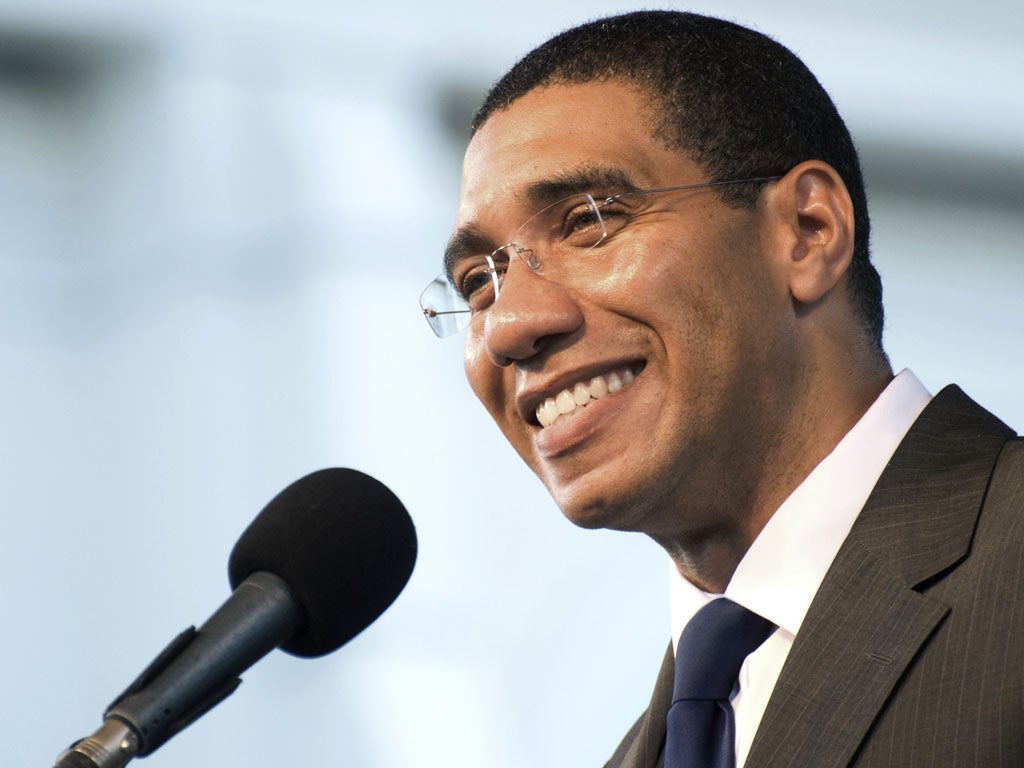Jamaica election race too close to call

Jamaica's two main political parties are in a neck-and-neck race to capture a majority of the country's 63 parliamentary seats and win control of the government for the next five years.
Both sides were predicting victory after a hard-fought lead-up to today's general elections pitting Jamaica's youngest prime minister and his centre-right party against a veteran opponent who hopes to return her centre-left faction to power and take a second lap as leader.
With most opinion polls putting the two parties in a virtual dead heat, candidates have scrambled for traction with undecided voters across the Caribbean island known as the birthplace of reggae and a hothouse for big-time sprinters.
Andrew Holness, a 39-year-old parliamentarian who was unanimously chosen to be prime minister by his party just two months ago when predecessor Bruce Golding resigned amid anaemic public backing, has tried to woo swing voters by promising new jobs in a debt-wracked nation with roughly 13% unemployment.
"Jamaicans are now safer, our economy is stable with a solid foundation for job creation," Mr Holness said in a last-minute national address touting Labour's record.
Mr Holness, largely seen as an unexciting but calm, pragmatic leader, said his party has started to reverse economic stagnation and effectively battled criminal gangs that have long been the scourge of the country.
He has also pledged to modernise the bloated public sector without massive layoffs.
He argues that the PNP severely mismanaged the economy over its 18-year-tenure until its 2007 election loss, leading to a steady devaluation of the Jamaican dollar that cut deeply into the purchasing power of most wage earners and caused the standard of living to fall.
Meanwhile, 66-year-old opposition chief Portia Simpson Miller, a stalwart of the People's National Party since its days as a democratic socialist faction in the 1970s, has dismissed Mr Holness as an indecisive leader and painted his party as hopelessly corrupt and unsympathetic to the plight of Jamaica's many poor inhabitants.
"It is not only going to be a victory but a wipeout of the Jamaica Labour Party," she told a crowd of cheering supporters dressed in the party's colour of orange.
Ms Simpson Miller was born in rural poverty and grew up in a Kingston ghetto, not far from the crumbling concrete jungle made famous by Bob Marley.
Also referred to as Sista P and Comrade Leader, she is known for her plain speaking style and warm interactions with supporters.
But detractors say her political style is largely superficial and she was out of her depth during her brief tenure as Jamaica's first female prime minister between March 2006 to September 2007, when her party was narrowly voted out of power.
The winner of today's vote will face deep economic problems on the island of 2.8 million people.
Join our commenting forum
Join thought-provoking conversations, follow other Independent readers and see their replies
Comments
Bookmark popover
Removed from bookmarks